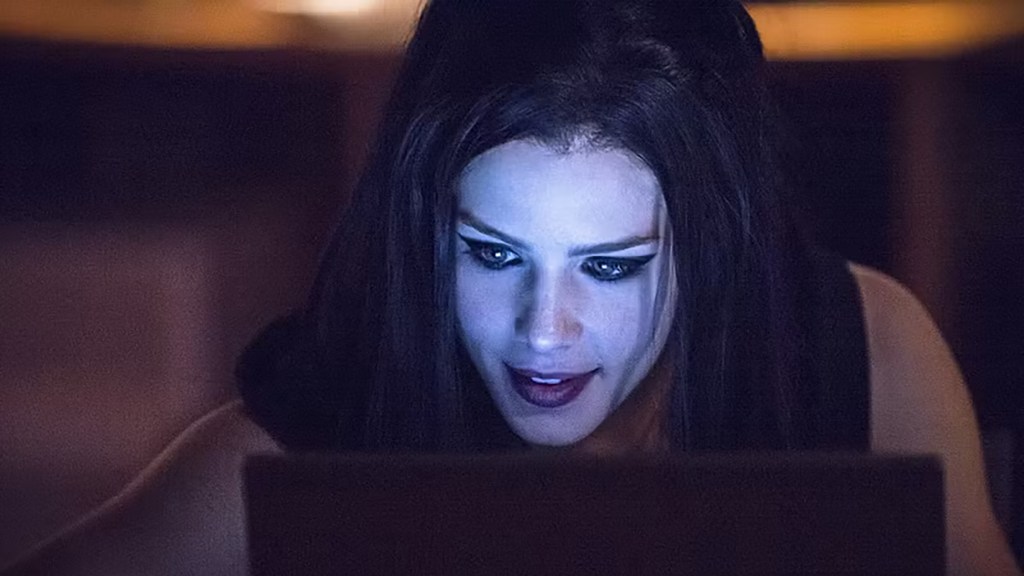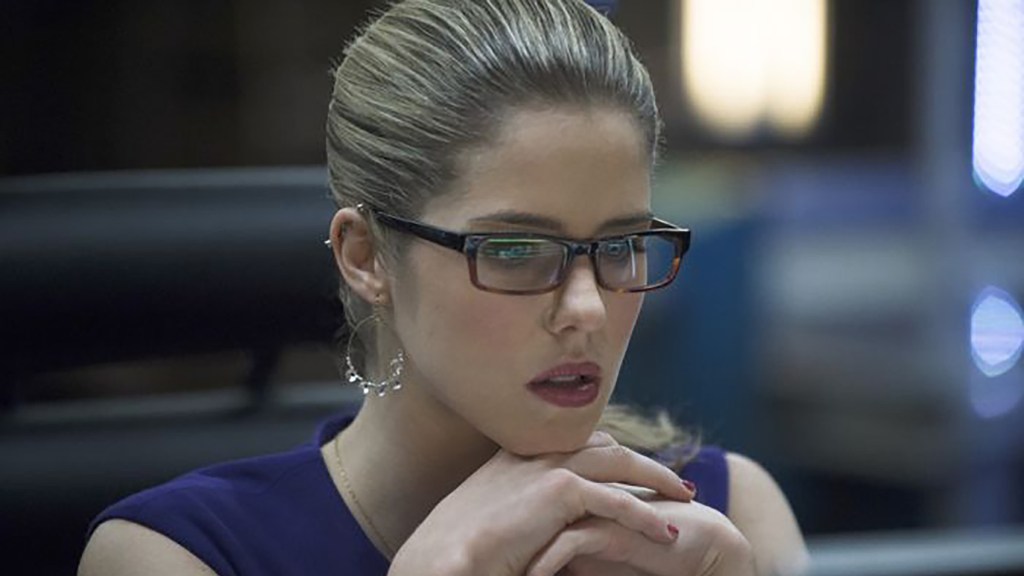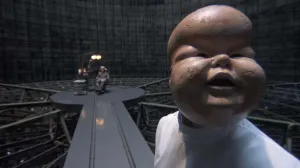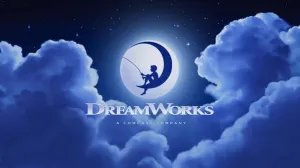The CW’s Arrow was groundbreaking for superhero television. A major success for DC, the series ended up the start of a franchise with the Arrowverse that dominated the network’s programming for a decade. Much of that dominance was rooted in the early seasons of Arrow, which took a grounded, more reality-based approach to the story of Green Arrow, telling the hero’s origin and adventures over two storylines — a present-day story and one told in flashback and detailing how Oliver Queen ultimately ended up the archery-based vigilante.
Videos by ComicBook.com
For the first 50 episodes of Arrow, the flashbacks had a very specific format. They were centered entirely on Oliver Queen (Stephen Amell) and while they did sometimes incorporate other characters from that time in the character’s past, the story being told in the flashbacks were entirely Oliver’s. That changed, however with Season 3’s fifth episode. Titled “The Secret Origin of Felicity Smoak”, the episode explored the backstory of Emily Bett Rickards’ fan-favorite character, changing up Arrow’s format and giving the series one of its best episodes — and it debuted 11 years ago today.
“The Secret Origin of Felicity Smoak” Changed Everything Fans Knew About Team Arrow’s Tech Wizard

Before “The Secret Origin of Felicity Smoak,” Arrow fans had been asking for more details about the IT genius since shortly after the character’s initial appearance in the series. Until that point, there wasn’t much fans knew about Felicity as compared to the other characters in the series. She had no backstory, no family that anyone had ever met. Viewers knew that Felicity had been raised by a single mother who was a cocktail waitress in Las Vegas and that her father had left them, but that was pretty much it — besides of course that Felicity is a genius. The episode changed all of that, filling in some gaps about her history, introducing not only Felicity’s mother Donna to the story, but showing that the quirky, beloved Felicity had a darker history that had quietly informed everything about her to date.
The episode is presented in a nonlinear fashion thanks to flashbacks. Instead of going to the island or Hong Kong to pick up more of Oliver’s past, viewers are taken instead to the late 2000s where Felicity is a student at MIT but this isn’t the Felicity fans are used to. College Felicity is goth, with dark hair, and operates as a hacktivist alongside her then-boyfriend Cooper Seldon and his roommate Myron Forrest. A genius even then, Felicity creates a computer virus that grants the group access to the government mainframe but that’s where things get dicey. Cooper wants to use this access to get rid of student loan records, thus freeing people from debt, but Felicity has misgivings about it and her misgivings are warranted. The FBI tracks Cooper’s efforts, leading to him being arrested and sentenced to prison. Cooper ends up ending his own life and the entire experience changes Felicity, leading to her dying her hair blonde, giving up her goth life for something more buttoned up.
In the present, those college days come back to haunt Felicity when it’s discovered that a group called Brother Eye have been carrying out cyber-attacks using the code Felicity developed back at MIT. Felicity and her mother, Donna (who had unexpectedly come to visit Felicity in Star City) are kidnapped by the group where it’s revealed Cooper isn’t dead at all. His death was faked by the NSA. Felicity has to think on her feet, pretending to help him hack the Treasury Department to contact Oliver, who ends up helping to rescue them.
The Episode Finally Let Felicity Truly Shine (And Paved the Way For Others To As Well)

“The Secret Origin of Felicity Smoak” was very well received by both audiences and critics. It wasn’t a perfect episode — some critics noted that plot was generally a little thin and the villain of the week fell a little short — but it was put together very well. Rickards’ performance was particularly solid, finally allowing for Felicity to have some true depth and go beyond being merely a clever sidekick. Felicity was very much in the driver’s seat for the episode and, in the end, didn’t actually need Oliver to save her or the day. It elevated the character to being a real hero, reinforcing how key to Oliver’s operations as a hero as well as that of Team Arrow more broadly that Felicity really is.
Additionally, by breaking with the Oliver-centric flashback formula, the episode also created space for Arrow to be about more than just the titular hero in a more substantial way. Other characters would also start to get more substantial flashback sequences (though not a full episode) centered around them after Felicity’s moment to shine. Most notably, John Diggle (David Ramsey) would get his own flashbacks in later episodes of the series that helped flesh out his character history. Felicity’s moment to shine fundamentally changed Arrow in that respect — and made it a better series overall.
What do you think? Leave a comment below and join the conversation now in the ComicBook Forum!









